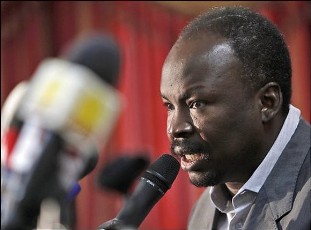ICC formally requests UNSC intervention over Sudan’s non-cooperation
May 26, 2010 (WASHINGTON) – The Pre-Trial Chamber judges at the International Criminal Court (ICC) approved a request by the prosecutor and issued a finding of non-cooperation by Sudan in extraditing two individuals charged with war crimes in Darfur.

In 2007, the ICC issued arrest warrants for Ahmed Haroun and militia commander Ali Mohamed Ali Abdel-Rahman, also known as Ali Kushayb. Sudan has so far rejected handing over the two suspects saying the Hague tribunal has no jurisdiction because it has not ratified the Rome Statute which is the founding treaty of the court.
Haroun was the state minister for humanitarian affairs at the time and is now the governor of South Kordofan.
“After taking all possible measures to ensure the cooperation of the Republic of the Sudan, the Chamber concludes that the Republic of the Sudan is failing to comply with its cooperation obligations,” the ICC judges said in their decision made public today.
The judges also ordered the court’s Registrar to transmit the present decision to the UNSC “in order for the Security Council to take any action it may deem appropriate”.
The decision does not include Sudanese President Omar al-Bashir who also faces an ICC arrest warrant since 2009. The ICC Prosecutor did not request a similar finding in his case.
Article 87(7) of the Rome Statute allows the judges to make a [non-cooperation] finding to that effect and refer the matter to the….Security Council”.
However, it is unlikely that the UNSC will seek any punitive measures against Sudan owing to probable opposition from China and Russia with large economic interests in the East African nation.
Other Western nations on the UNSC will also seek to avoid any distraction from the 2011 referendum in South Sudan which will likely produce the world’s newest nation.
The United Nations says more than 300,000 people have been killed since the Darfur conflict broke out in 2003, when minority rebels took up arms against the Arab-dominated Sudanese government for a greater share of resources and power.
Sudan puts the death toll at 10,000.
(ST)
